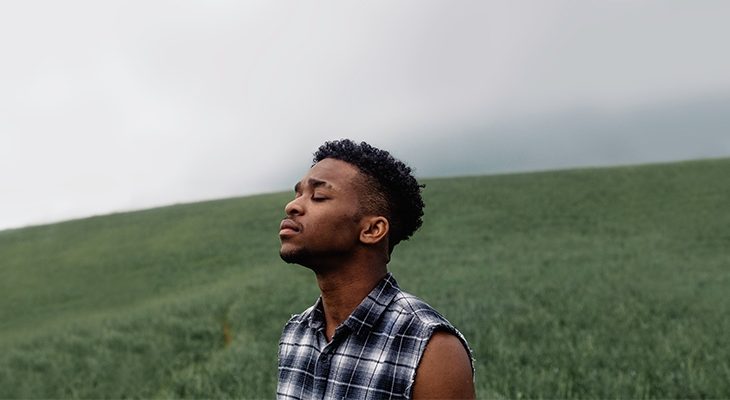From COVID to Liberation
March 31, 2021

Rabbi Sandra Lawson received ordination from the Reconstructionist Rabbinical College in June 2018. She holds a Master’s degree in Sociology with a focus on environmental justice and race, is an Army veteran, and an Interfaith America Racial Equity Fellow.
On the second night of Passover, my wife Susan and I had a Passover Seder with a dear friend and members of her immediate family. This year celebrating Passover in person is extraordinary because many of us have been isolated for over a year. The Seder, once again, reminded me that the Torah, and particularly the book of Exodus, is a fascinating story of an enslaved people’s struggle for freedom. During the Seder, we find ourselves transported back in time to our enslavement while reflecting on where we are in our present lives. We retell the suffering of our people and how we moved from enslavement to freedom.
In the Passover narrative, the Israelites gain their freedom because God sides with the Israelites who cry out to God. God hears their cry and leads them out of bondage, then to freedom, and finally to redemption. As we move through the plagues of the Seder, one can’t help but focus on how we are living through an actual modern plague. During our dinner conversation, I started to think about our society’s freedom from COVID. In my mind, COVID represents Mitzrayim, the narrow place, our place of enslavement, the place of trauma and pain. As more of us are vaccinated and we move toward freedom, we find ourselves at the edge of the sea thinking about our past, our pain, our restrictions, grief, and loss. We have survived and we have come this far to find ourselves at the edge of the sea. We know the way forward is hard, but we can’t go back to the narrow place, to the way things were before COVID. This pandemic has shown more of us the inequities in our society, and we have seen that the poor and marginalized have suffered the most during this pandemic. Racism has played out on our screens for the world to see, showing many of us that racism has never gone away.
It’s time for us to do some internal accounting, opening our hearts and reflecting on our souls; in Hebrew, we call this heshbon hanefesh. It’s time for us to decide who we want to be as a society. We must understand systems of oppression, inequality, and inequity so that we all can truly be free. We must do this if we are ever to reach liberation.
All of this made me think about my time studying liberation theologies. Liberation theologies are theologies of freedom that respond to some form of oppression: poverty, social class, the oppression of people of color, the oppression of women, and so on. It’s also important to know that liberation theologies are focused on the future and what can be done by individuals to create a better world, and what we can do to help those disenfranchised in our society. The Passover story is a liberation theology, and like all liberation theologies, God sides with the oppressed and marginalized over the oppressors. We live in a world where people suffer. We have a responsibility to try and fight for the poor, the oppressed, and the marginalized.
As Jews, if we are to celebrate our own liberation from slavery without working to empower and better the lives of those who suffer, we are failing to live up to our responsibilities as Jews. Passover should remind us that we are obligated to not only celebrate our liberation, but also to invite others to join with us in this celebration. Remembering our collective history as enslaved people should inform our actions today; we must strive for the liberation of all in our society, especially those marginalized, so that those who are suffering may know justice and freedom.
Which brings me to the season of counting the Omer. What is an Omer? The Omer is a measure of barley or wheat. The Omer is also the name for the seven weeks between Passover and the holiday of Shavuot. We celebrate our freedom from bondage on Passover; and on Shavuot, we celebrate receiving the Torah on Mount Sinai as free people.
Jewish mystical tradition connected counting the Omer with spiritual practices of refining one’s soul so we will be ready to receive revelation, the Torah at Sinai. Many have adopted this practice of counting each day as a way to check in with ourselves. Our counting encourages us to see the seven-weeks as a pilgrimage. I see this journey as an opportunity to move us towards liberation so we will be ready to receive revelation and be the people God intended for us to be.
Share
Related Articles



